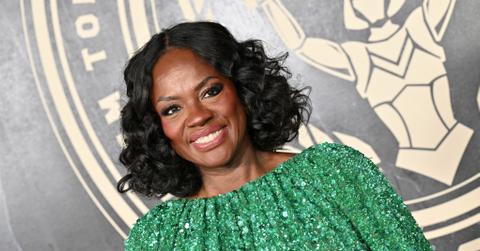
Viola Davis: Creating a Voice for Self-Love
By Erin WilsonFeb. 17 2024, Published 10:56 p.m. ET
Mental health awareness has shaken the table in more ways than one due to powerful Black women speaking up, like legendary actress and advocate Viola Davis.
The four-time Oscar winner shared her life experiences with readers in her book, Finding Me. She explored childhood poverty, facing discrimination in Hollywood, and embracing her true self.
Many have trouble finding who we are and what makes us stand out. We, Black women, are often shamed when we find a small part of us that brings us joy.
"I wish I knew that who and what I am was enough—that who I am is perfect. If someone had told me back then, I would've maybe thought that was conceited." Viola Davis expresses in an Elle issue focusing on Black beauty.
Viola Davis has dedicated her journey to uplifting Black women and tearing down the systemic patriarchy deemed to minimize our experiences and livelihood.
Unveiling Imposter Syndrome
Doubting abilities, talents, and hard work are very familiar in the Black community. Sometimes, we go overboard and produce two times the work, the talent, and the drive to be recognized.
The EGOT winner touches on this subject a lot. Imposter syndrome is something she still faces even after winning awards.
"I still feel like I'm going to wake up, and everybody's going to see me for the hack I am,” she told ABC News in 2017.
For someone so bright and talented like Viola, this form of negativity still can trickle into her mind. She combats the syndrome to give herself pride in her work. It's okay to recognize your accomplishment in the moment.
I struggle with this as well. I tend to shy away when I am recognized at work or receiving compliments. I give the spotlight to someone else in return for dimming my light. In reality, I'm just uncomfortable with myself and my success.
The pressure collectively we feel to be perfect causes us to have imposter syndrome to creep about.
Viola chooses to speak out against it, as it helps people not feel alone.
The Male Gaze Is None of Our Concern
"I think beauty standards have changed," Viola told People magazine. "I think that what's shifted is that whole idea of mental health being associated with beauty [and] of understanding who we are beyond male desirability."
For years, women were subject to valuing their worth through their beauty. Of course, this was not our doing, but it stemmed from misogyny. Especially in Hollywood- when shown beautiful people, we compare ourselves in the mirror.
She addresses in her beauty statements that Black women are starting to take a stance in changing their careers.
Women over 50 and of Black descent receive the roles of mothers- putting them into a box so that their looks fit into a category. It doesn't matter how talented someone can be — if a male doesn't feel you're desirable, the starring role goes elsewhere.
Due to many voices like Viola's actresses are turning the tables. Producing, directing, and writing are examples of shifting the male gaze to talent. Our worth is beyond our looks as women, and it's up to us to create our own.

